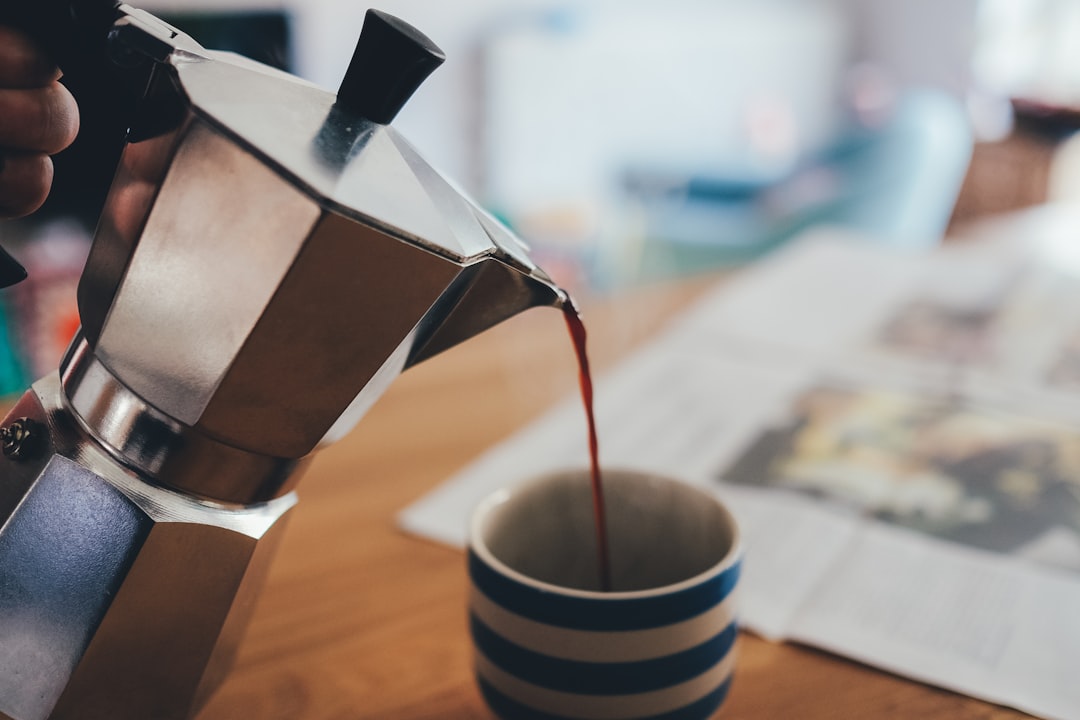Ah, yes, the long-running espresso vs coffee dispute. The caffeine competition is still pretty hot, to say the least. Are the beans of espresso and coffee inherently different? The short answer is no. You may have seen bags of coffee beans at the grocery store labeled “espresso beans” and others labeled “coffee beans.” Surprisingly, this has nothing to do with the bean itself. Rather, the label on the bean is actually just a recommendation of how to grind and prepare it.
Flavor and Grind
Think of pitting espresso vs coffee as pitting two siblings against each other. Espresso is the bold-flavored, slightly-thicker-than-coffee drink that comes from finely-ground beans brewed with a high grounds-to-water ratio. Coffee, on the other hand, is a thinner, less concentrated liquid that generally has a milder flavor and the grounds used are coarser.
Brewing and Beverages

More often than not, coffee is going to be served in coffee shops, cafe, cafeterias, restaurants, and gas stations alike. But to mix it up from the traditional black coffee, there’s always the classic cafe au lait (French for “coffee with milk”) or the intense red eye. Within the realm of pure coffee are different brewing methods, roasts, and bean types to keep you from drinking the same ol’, same ol’ every morning.
Espresso drinks are what you’re more likely to order from a coffee shop. These are the cappuccinos, lattes, macchiatos, and Americanos, amongst others. Various brewing methods exist for espresso, as well, but you’re most likely to see an espresso machine in a coffee shop and a percolator at home.
Which Has More Caffeine?

While we’ve determined that difference in concentration is crucial when making coffee drinks distinct, it brings us back to our original question. Which drink has more caffeine? According to Mayo Clinic, eight ounces of brewed coffee contains 95-165 milligrams of caffeine. That’s about 12-21 milligrams per ounce. Espresso, on the other hand, has 47-64 milligrams of caffeine per ounce. So our espresso vs coffee debate closes with this: one cup of coffee definitively has more caffeine than one shot of espresso, but espresso is inherently more caffeinated because it’s more concentrated.
What to Order
If you’re looking to optimize your caffeine intake for the day, the red eye is going to be your best bet. It’s coffee and espresso with no funny business. If you’re looking for something less abrasive on the taste buds that still gives you a good amount of caffeine, a cup of coffee will do the trick.
If you want the welcoming embrace of steamed milk and some sweetness, you can order a standard espresso drink at the expense of some caffeine (if you really need that extra boost, you an always ask for an extra shot). When it comes down to it, you can customize whatever drink you’re craving to satisfy all your caffeine needs.
There you have it. Tell all your friends that espresso kicks coffee’s butt when it comes to caffeine per ounce, but don’t forget to add that it’s not typical to drink eight ounces of espresso (at least I hope not) or a single ounce of coffee. It’s all about perspective. Happy caffeinating, my fellow coffee enthusiasts.




